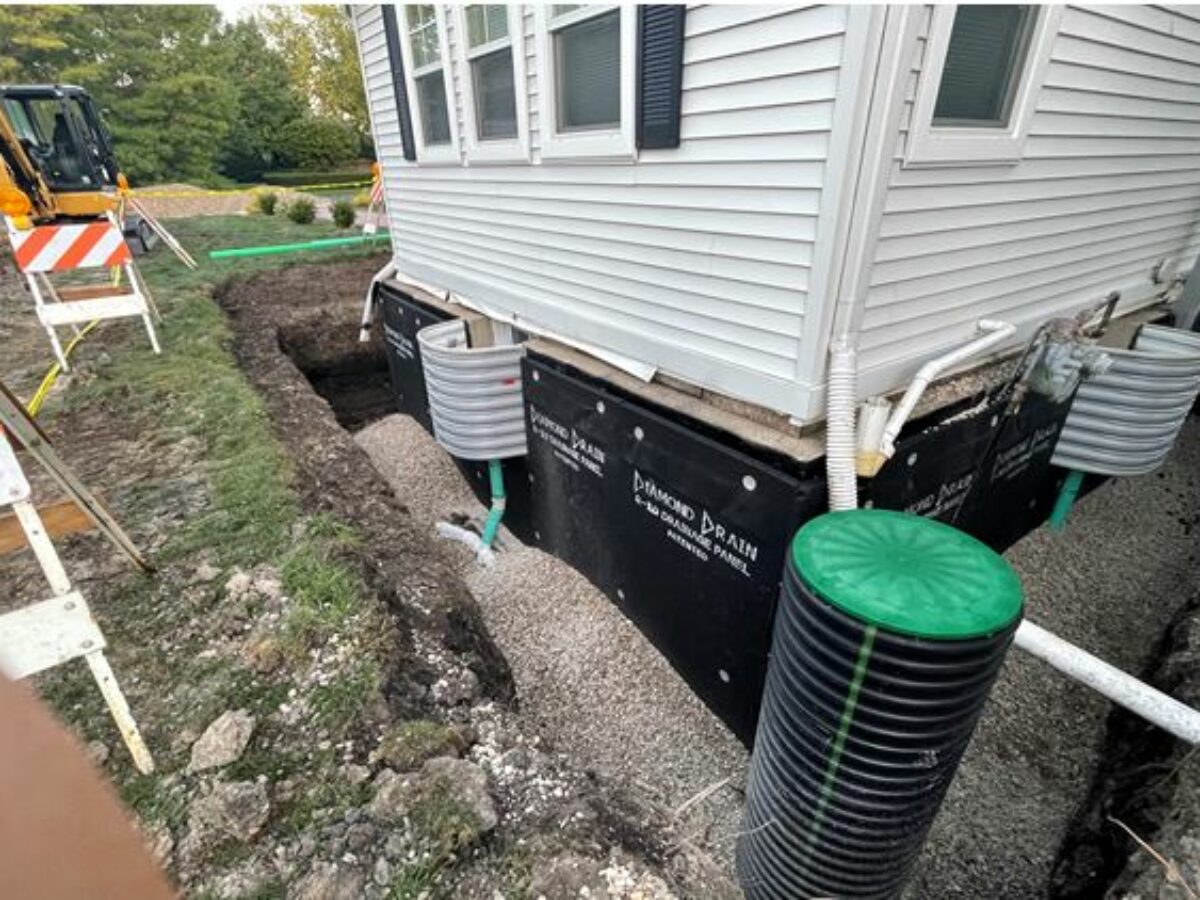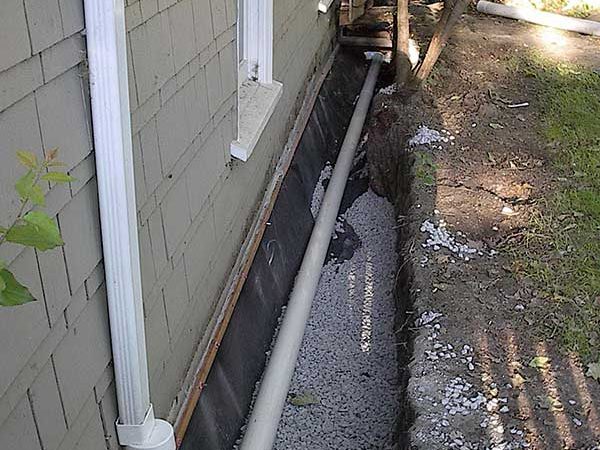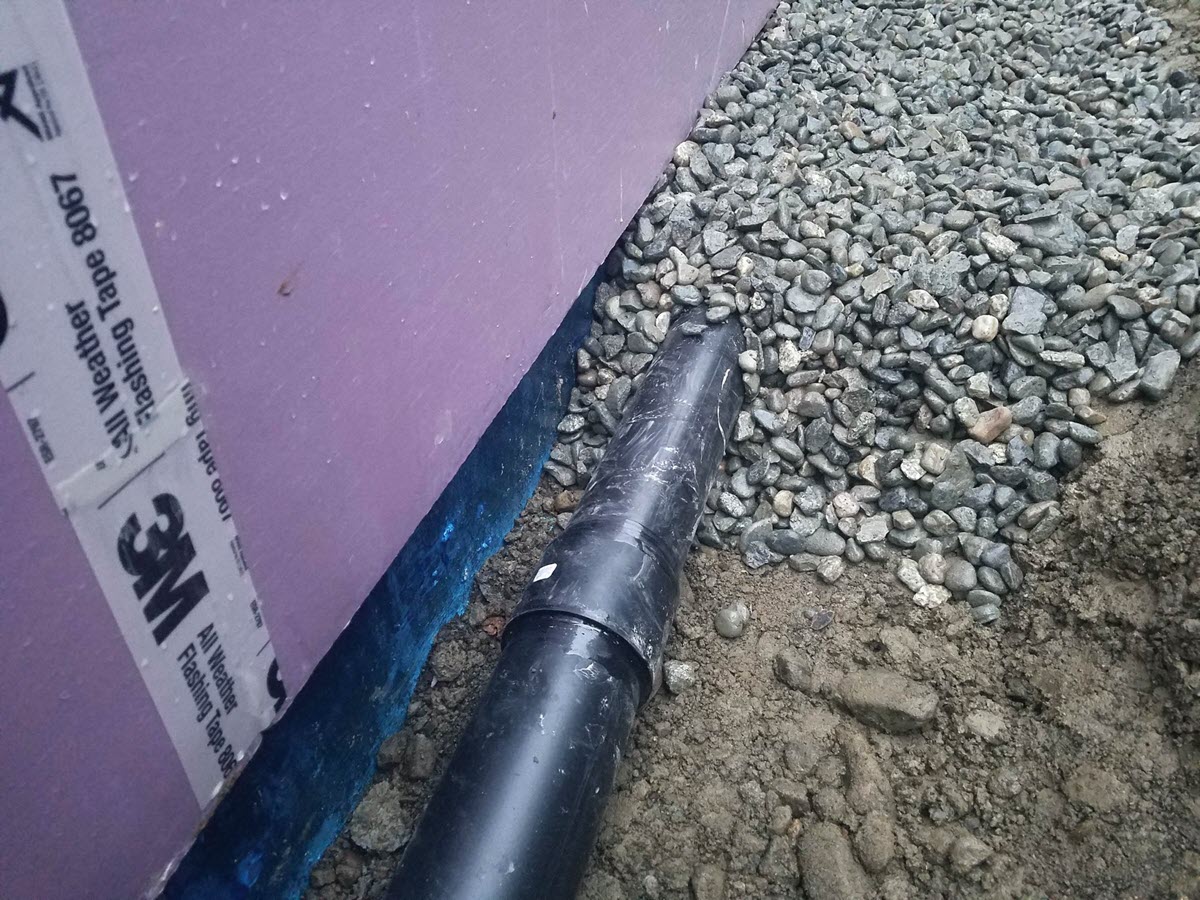Foundation Drain Servicesin Shelby Township MI
Foundation Drain Solutions to Keep Your Building Secure
We Are Locally Owned & Operated For Over 37 Years
Contact Us Today!
We Serve Businesses In And Around The Following Cities:
About Foundation Drain Services
Foundation Drain: A Prerequisite Art in Commercial Property Development in Shelby Township
Examining some of the premier commercial properties in the bustling city of Shelby Township, there is a common factor that significantly contributes to their long-term stability and foundation; that is, a robust and efficient foundation drain system. Understanding the potential power of a foundation drain is paramount if we are committed to constructing commercial properties with impressive longevity. In this comprehensive overview, we will delve into the fundamental understanding of foundation drains, highlighting their advantages, and providing insights gathered from real-world applications. As an aid to developers and property owners, this article features a compilation of practices from industry-leading companies such as D&J Contracting.
The Critical Role of Foundation Drains in Commercial Properties
First and foremost, it is essential to comprehend what a foundation drain is and its indispensable role in commercial properties. A foundation drain is a drainage system, like a foundation french drain or an exterior foundation drain installation, explicitly designed to divert water away from the structure’s foundation. It operates on simple physics laws – gravity pulls the water into the drain and channels it away from the structure, preventing potential damage from water buildup.
It is common to observe in Shelby Township commercial properties, foundation drainage systems such as foundation footer drains, exterior foundation drains, and house foundation drainage installations to ensure water does not penetrate through the foundation to the interior of the property. Such drainage systems have proven tremendously essential, especially in cities like ours that experience varying weather conditions. Commercial properties stand to gain from the additional advantages of preventing cracks in the foundation, preventing the growth of mold, and avoiding the inherent issues of a flooded basement.
Foundation Drain Types and Installation
Foundation drains come in different types, with variations in form and function specific to different commercial properties. These range from foundation perimeter drain to a drain system around foundations. The type of foundation drain to be emplaced within a property primarily depends on factors like the property’s size, the geographical location, and the prevailing weather condition. Here is where expert advice is required. For instance, D&J Contracting boasts a vast knowledge and experience in advising on the ideal foundation drain installation based on the property’s unique attributes.
Installation of a foundation drain, regardless of the type, is a specialized task that requires expertise lest the eventual purpose becomes defeated. If the installation isn’t done correctly, the house foundation can suffer severe water damage, and the extremity will be immeasurable. It is therefore advisable to engage a tested and trusted professional like D&J Contracting that has a track record of executing seamless foundation drain installations in a commercial property.
Benefits and Practical Insights
The benefits derived from installing a foundation drain system in your commercial property far outweigh the expense; these benefits are enormous. Firstly the integrity of the property’s foundation is assured. Installation also prevents consistently damp basement floors and walls that lead to growing mold and fungi, which can affect the health conditions of the occupants.
A typical real-world application of foundation drains can been seen in the numerous commercial properties in Shelby Township. Properties thus equipped have experienced very exceptional durability of their foundation integrity, thereby appreciably elongating the lifespan of such properties. Businesses in this city have capitalized on these benefits profoundly.
Take, for instance, a large commercial complex in the center of the city built more than six decades ago. The building has remained structurally sound and has required minimal repairs to its foundation. Upon investigation, it was revealed that a combination of a foundation water drainage system and a foundation wall drainage system was installed at the time of construction. A testament to the foresightedness of the original builders and relevance of a foundation drain system even in our modern time.
Why Shelby Township Commercial properties need Foundation Drains
Given the commercially buzzing scenario of Shelby Township, awash with various business activities, there is an exigent need for more durable commercial properties that can readily cater to the ever-growing commercial needs. To this end, creating such durable commercial properties inevitably leans heavily on plotting a tenable foundation water drainage system and, in turn, a sound foundation drain.
By ensuring that a drain is constructed around the house foundation during the building phase and guaranteeing that groundwork is in place to drain water away from the house foundation, property developers set a solid premise for a durable property. We have seen the results of this strategy time and time again with multiple commercial properties in the city. D&J Contracting has been at the forefront of putting forth these proactive measures towards developing lasting utilities.
Optimal Drain System Configuration: Subtle Considerations
The potency of a commercial property’s drainage system is not just in the installation alone; it is in the strategic and thoughtful configuration or placement.
For instance, drains need to be placed near the foundation while ensuring that they do not negatively impact the overall stability of the building. Additionally, the soil gradients need to be correctly set while installing drainage systems. They must ensure water always flows away from the property’s foundation. With the help of a seasoned professional, these strategic decisions become straightforward and precise.
Recently, D&J Contracting successfully completed an installation of drain systems around properties in Shelby Township. Their strategic approach accounted for landscape features and construction elements, ensuring the drainage systems proved very effective in diffusing water away from the properties’ foundations.
In conclusion, to ensure the delivery of long-lasting commercial properties in Shelby Township, the seemingly subtle details of foundation drain installations, together with the inherent benefits attached, need to be brought to fore. D&J Contracting stands as a provider of such essential services. This guide reveals the critical nature of foundation drains, compelling property developers and commercial real estate investors to pay keen attention to ensuring this facility is functional in all their properties. A well-constructed foundation drain system is a massive step towards guaranteeing property durability. A step every commercial property in Shelby Township should aim to take.
Foundation Drain Services Gallery


Call Us Today to receive your Free Quote for
Foundation Drain in Shelby Township
Serving: Shelby Township, Michigan

About Shelby Township, Michigan
Shelby Township was set off by an act of the Michigan Territorial Legislature on April 12, 1827, and a civil government was organized the following May. It originally included the area that is now Sterling Heights, which was set off March 17, 1835, as the township of Jefferson, renamed to Sterling on March 6, 1838. Utica, located on the southern edge of the township, originally incorporated as a village on March 9, 1838, although that corporation was dissolved soon afterwards. The village was incorporated for a second time on May 10, 1877.
The village of Disco (42°41′02″N 83°02′04″W / 42.68389°N 83.03444°W) was located at what is now the junction of 24 Mile Road and Van Dyke Road. and was platted in 1849. The community never incorporated, although the local high school, the Disco Academy, gained some local recognition and a post office named Disco operated from May 5, 1854, until July 31, 1906. Only a few homes and a namesake on old county road maps remain of this now forgotten historic place. See also: “The Lost Village of Disco” on the Shelby Township Historical Society website.
Shelby Township is in western Macomb County and is bordered to the west by the cities of Rochester and Rochester Hills in Oakland County. The cities of Utica and Sterling Heights border the township to the south. Mount Clemens, the Macomb county seat, is 11 miles (18 km) to the southeast, and downtown Detroit is 24 miles (39 km) to the south.
According to the United States Census Bureau, the township has a total area of 35.2 square miles (91 km), of which 34.4 square miles (89 km) are land and 0.8 square miles (2.1 km), or 2.31%, are water. The township is drained by the Clinton River, a tributary of Lake St. Clair.
There are no incorporated villages and four unincorporated communities:
- Preston Corners is located at the corner of 25 Mile and Schoenherr roads at 42°41′58″N 82°59′45″W / 42.69944°N 82.99583°W. Ira and Deborah Preston bought 400 acres (1.6 km) of land from the United States government in 1826 and settled on it the following year, later building a sawmill and a picket fence factory.
- Shelby is located at Shelby and 25 Mile Roads (42°41′51″N 83°04′10″W / 42.69750°N 83.06944°W).
- Shelby Village is located where Auburn and Ryan roads intersect. Housing was built in this area in the 1940s.
- Yates is on the boundary with Rochester and Rochester Hills, Oakland County (42°40′25″N 83°05′45″W / 42.67361°N 83.09583°W ; Elevation: 669 ft./204 m.).
As of the census of 2010, there were 73,804 people, 28,299 households, and 17,923 families living in the township. The racial makeup of the township was 89.4% White, 3.1% African American, 3.3% Asian, 0.3% from other races, and 1.5% from two or more races. Hispanic or Latino of any race were 2.4% of the population.
The U.S. Census Bureau defined Shelby Charter Township as a census-designated place (CDP) in the 2000 Census so that the community would appear on the list of places (like cities and villages) as well on the list of county subdivisions (like other townships). The final statistics for the township and the CDP were identical. As of the census of 2000, there were 65,159 people, 24,486 households, and 17,923 families living in the township. The population density was 1,878.7 inhabitants per square mile (725.4/km). There were 25,265 housing units at an average density of 728.5 per square mile (281.3/km). The racial makeup of the township was 94.95% White, 0.85% African American, 0.24% Native American, 2.11% Asian, 0.02% Pacific Islander, 0.45% from other races, and 1.38% from two or more races. Hispanic or Latino of any race were 1.71% of the population.
There were 24,486 households, out of which 33.7% had children under the age of 18 living with them, 62.6% were married couples living together, 7.3% had a female householder with no husband present, and 26.8% were non-families. 21.6% of all households were made up of individuals, and 6.6% had someone living alone who was 65 years of age or older. The average household size was 2.65 and the average family size was 3.13.
In the township the population dispersal was 24.9% under the age of 18, 8.5% from 18 to 24, 31.0% from 25 to 44, 25.1% from 45 to 64, and 10.5% who were 65 years of age or older. The median age was 37 years. For every 100 females, there were 99.6 males. For every 100 females age 18 and over, there were 97.7 males.
The median income for a household in the township was $65,291, and the median income for a family was $76,312. Males had a median income of $59,380 versus $33,844 for females. The per capita income for the township was $30,131. About 2.7% of families and 3.7% of the population were below the poverty line, including 4.1% of those under age 18 and 5.1% of those age 65 or over.
Shelby Charter Township has a Supervisor-Board style township government with elected supervisor, clerk, treasurer and four trustees. The Township operates the Shelby Township Library as well as Cherry Creek Golf Course.
The majority of residents are zoned into Utica Community Schools, which serves parts of the communities of Sterling Heights, Macomb Township, Washington Township, and Ray Township, as well as most of Shelby Charter Township, and all of Utica. However, a small number of residents are zoned into Romeo Community Schools.
Call Us Today to receive your Free Quote for
Foundation Drain in Shelby Township
Related Services in Shelby Township, Michigan
We Serve Businesses In The Following Zip Codes:
48007, 48015, 48021, 48026, 48035, 48036, 48038, 48042, 48043, 48044, 48045, 48046, 48047, 48048, 48050, 48051, 48066, 48071, 48080, 48081, 48082, 48083, 48084, 48085, 48088, 48089, 48090, 48091, 48092, 48093, 48098, 48099, 48225, 48230, 48236, 48310, 48311, 48312, 48313, 48314, 48315, 48316, 48317, 48318, 48397